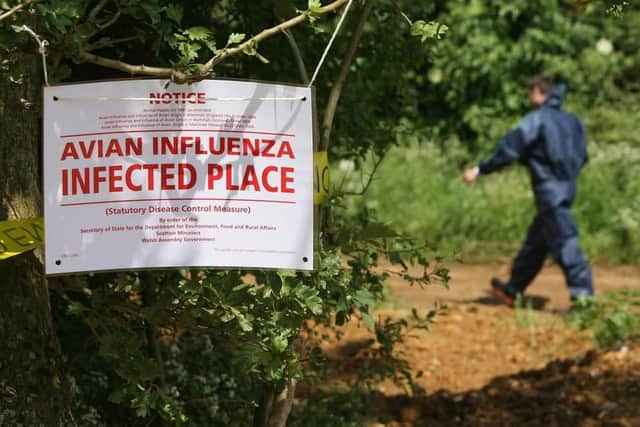Scotland's chief vet: Turkey 'may be scarcer' this Christmas amid unprecedented bird flu outbreak
Sheila Voas said 224,000 birds have been slaughtered in Scotland so far, with eight premises affected, six of which are commercial. Five of these are operated by the same Aberdeenshire owner.
However, she said the situation was “nowhere near as bad” as elsewhere. In England, around 1.67 million turkeys and two million chickens have been slaughtered, as well as ducks and geese, with 125 premises hit.
Advertisement
Hide AdAdvertisement
Hide AdMs Voas told Holyrood’s rural affairs committee on Wednesday: "This year has been unprecedented in terms of avian flu. That's a word I don't use lightly. We said it last year – this year has been much worse."


She later added: "It is possible that in the next few weeks the picture here will deteriorate, in which case we will need to take further action." It comes after MPs were warned half of all free range turkeys have been killed.
Avian flu is a viral disease predominantly spread by wild birds, particularly water fowl, through their faeces. It can have a devastating effect on poultry, with outbreaks requiring the compulsory slaughter of all birds in affected flocks to prevent further spread.
Ms Voas said the number of birds slaughtered in Scotland consists of around 1.5 per cent of the total flock, compared to around 2.5 per cent to 3 per cent down south.
She said the disease can be particularly deadly for turkeys. However, Scotland does not have large-scale commercial turkey production compared to England.
While 1.67 million turkeys have been slaughtered down south, Ms Voas said the normal Christmas market consists of around ten million, a proportion of which are slaughtered early in the year and frozen.
She told MSPs: "Turkey may be scarcer, but I'm not concerned that there isn't going to be any turkey around this Christmas."
The outbreak in England started in East Anglia and has since spread over much of the country. In Scotland, two backyard flocks have been infected in Orkney, as well as a small producer in Lewis. One free range flock in Ayrshire has also been hit, alongside five commercial flocks located in Aberdeenshire, all under the same owner.
Advertisement
Hide AdAdvertisement
Hide AdMs Voas explained migratory patterns can account for the different geographical spread of the disease. There is also evidence the virus survived over the summer in England and the current outbreak is "spill-over".
Ms Voas said the chance of the disease spreading northwards from England is "slim" because wild birds tend to move to escape cold snaps and it is unlikely England will be colder than Scotland. However, she added: "If it becomes very cold in Norway or Iceland, that may drive even more birds south to us, and that would increase the risk."
The UK Government has ordered all poultry to be kept indoors in England, but this move has not been replicated in Scotland.
Ms Voas said the step had not been ruled out, but highlighted that housing itself "may be a risk factor, because it allows lower doses to take hold and to spread compared to birds that are outside". It also throws up welfare issues, she said. In the five Aberdeenshire cases, the birds were already housed.
The chief vet said "good bio-security" was the single most important thing.
Comments
Want to join the conversation? Please or to comment on this article.
